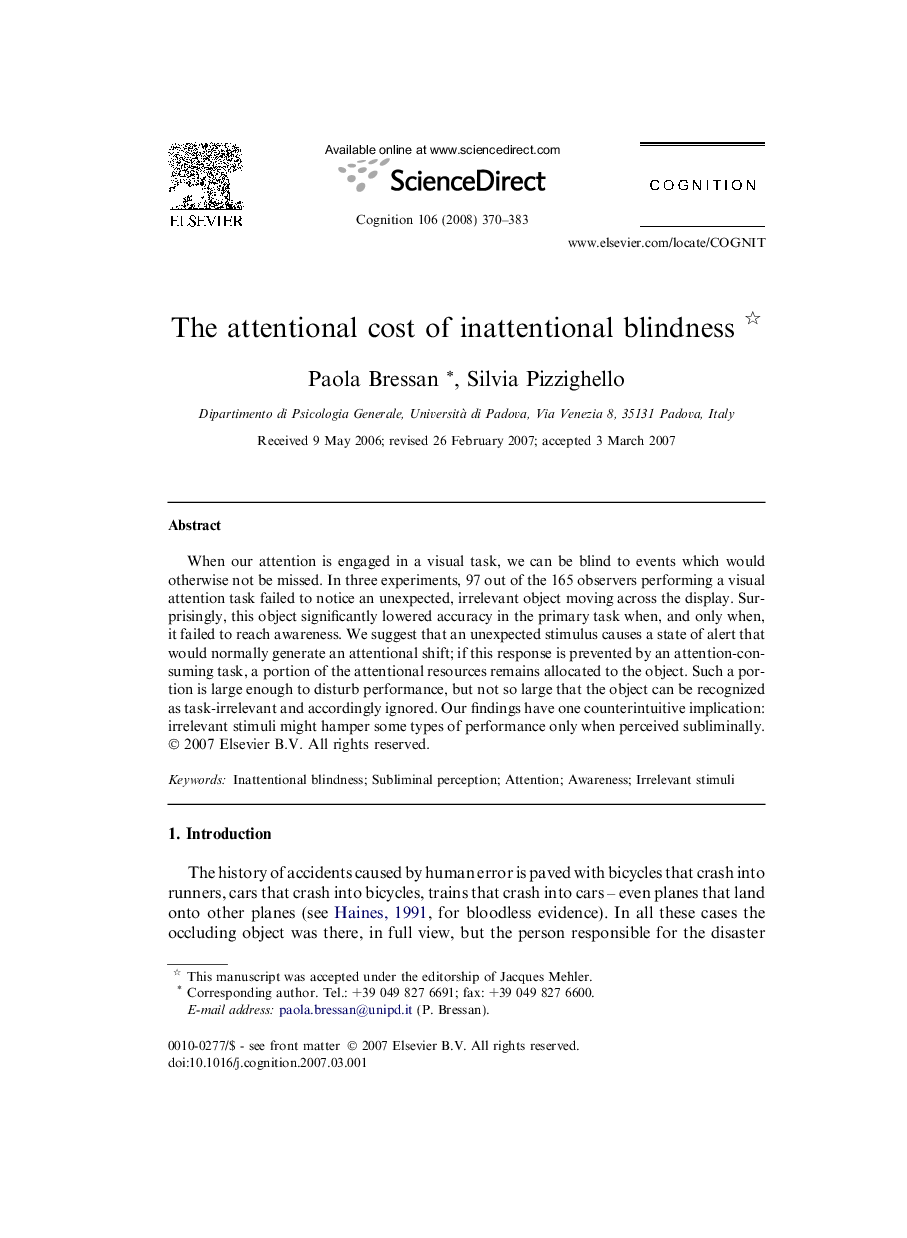| Article ID | Journal | Published Year | Pages | File Type |
|---|---|---|---|---|
| 927437 | Cognition | 2008 | 14 Pages |
When our attention is engaged in a visual task, we can be blind to events which would otherwise not be missed. In three experiments, 97 out of the 165 observers performing a visual attention task failed to notice an unexpected, irrelevant object moving across the display. Surprisingly, this object significantly lowered accuracy in the primary task when, and only when, it failed to reach awareness. We suggest that an unexpected stimulus causes a state of alert that would normally generate an attentional shift; if this response is prevented by an attention-consuming task, a portion of the attentional resources remains allocated to the object. Such a portion is large enough to disturb performance, but not so large that the object can be recognized as task-irrelevant and accordingly ignored. Our findings have one counterintuitive implication: irrelevant stimuli might hamper some types of performance only when perceived subliminally.
